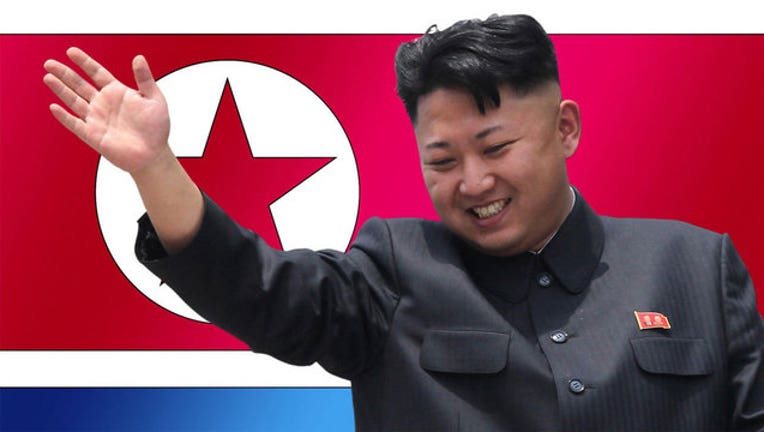NKorea warns it has restarted all nuclear bomb fuel plants

PYONGYANG, North Korea (AP) — With a big anniversary drawing near, North Korea declared Tuesday it has upgraded and restarted all of its atomic fuel plants — meaning it could possibly make more, and more sophisticated, nuclear weapons.
The statement, coming just a day after it said it is ready to conduct more rocket launches any time it sees fit, has heightened concerns the North may soon either conduct a launch — which Washington and its allies see as a pretext for testing missile technology — or hold another test of nuclear weapons that it could conceivably place on such a rocket.
Either would be sure to get world attention and be milked by North Korea's state media as major achievements by Kim Jong Un and his ruling regime.
But North Korea's recent statements also fit a pattern of using claimed improvements in its nuclear and missile programs — many of which don't lead to launches or nuclear tests — to push for talks with the United States that could eventually provide the impoverished country with concessions and eased sanctions, or backfire and deepen its standoff with the U.S. and its allies.
North Korea has spent decades trying to develop operational nuclear weapons.
It is thought to have a small arsenal of atomic bombs and an impressive array of short- and medium-range missiles. But it has yet to demonstrate that it can produce nuclear bombs small enough to place on a missile, or missiles that can reliably deliver their bombs to faraway targets.
Still, it has conducted three nuclear tests and a series of steadily improving long-range rocket launches, and some analysts see the announcements as foreshadowing another launch ahead of the anniversary celebration or a fourth nuclear test, which would push North Korea further along in its nuclear aims.
North Korea said Tuesday in its state media that, as it pledged to do in 2013, the plutonium and highly enriched uranium facilities at its main Nyongbyon nuclear complex have finally been "rearranged, changed or readjusted and they started normal operation." It said its scientists had improved "the levels of nuclear weapons with various missions in quality and quantity."
North Korea, an autocracy run by the same family since 1948, closely controls information about its nuclear program. As a result, just what is happening at Nyongbyon is unclear. North Korea booted out international inspectors in 2009, and independent assessments by outside experts since then have been spotty.
At various points in the decades-long standoff over its nuclear ambitions, North Korea has said it has shut down or restarted its atomic fuel production. In 2013, it said it would restart a plutonium reactor that had been shuttered under a 2007 disarmament agreement.
Satellite imagery earlier this year showed signs it still wasn't operating fully. A uranium enrichment facility unveiled to a visiting American scientist in 2010 presumably gives North Korea a second way to make fissile material for bombs.
On Monday, the North's aerospace agency said it is ready to launch new satellites aboard long-range rockets. Many analysts abroad have expected North Korea would launch a rocket as part of celebrations of the Oct. 10 ruling Workers' Party founding anniversary.
The world will "clearly see a series of satellites soaring into the sky at times and locations determined" by the Workers' Party, an unidentified director at the North's National Aerospace Development Administration director was quoted as saying by state media.
North Korea has said its satellite launches are peaceful and meant for weather observation. The United States and its allies consider them covers for banned tests of long-range missiles.
Ballistic missiles and rockets used in satellite launches share similar bodies, engines and other technology.
South Korea's Defense Ministry said Tuesday that it had not detected any sign indicating North Korea is preparing a rocket launch.
Analysts in Seoul, meanwhile, said North Korea's announcements suggest an imminent nuclear test, although that is far from clear at this point.
After several failures, North Korea put its first satellite into space with a long-range rocket launched in late 2012. The U.N. said it was a banned test of ballistic missile technology and imposed sanctions.
North Korea conducted its third nuclear test in February 2013, inviting further international condemnation and sanctions. Later that year it threatened Seoul and Washington with nuclear strikes.
Despite the domestic propaganda gains and value to the North's military, a rocket launch or especially a nuclear test could come at a heavy cost for its regime.
China, North Korea's last major ally and aid benefactor, made it clear that it doesn't want to see a rocket launch by North Korea.
"As a sovereign country, North Korea has the right to the peaceful use of outer space, but it's restricted by relevant resolutions by the U.N. Security Council," Foreign Ministry spokesman Hong Lei said at a regular news briefing Tuesday. "The resolutions by the U.N. Security Council should be fully implemented."
North Korea's latest announcements also raise doubts about recent signs of easing animosities between the rival Koreas, which agreed to hold reunions next month of families separated by the Korean War.
Before a thaw, the two Koreas had threatened each other with war in August in the wake of mine explosions blamed on the North that maimed two South Korean soldiers earlier that month.
The Korean Peninsula remains in a technical state of war because the 1950-53 Korean War ended with an armistice, not a peace treaty. About 28,500 U.S. troops are stationed in South Korea.
Washington and Seoul say the troops must remain as deterrence against potential aggression from North Korea, but the North says they must be removed if there is to be peace on the peninsula.
___
Associated Press writers Hyung-jin Kim and Foster Klug in Seoul, South Korea, and news assistant Liu Zheng in Beijing contributed to this report.

